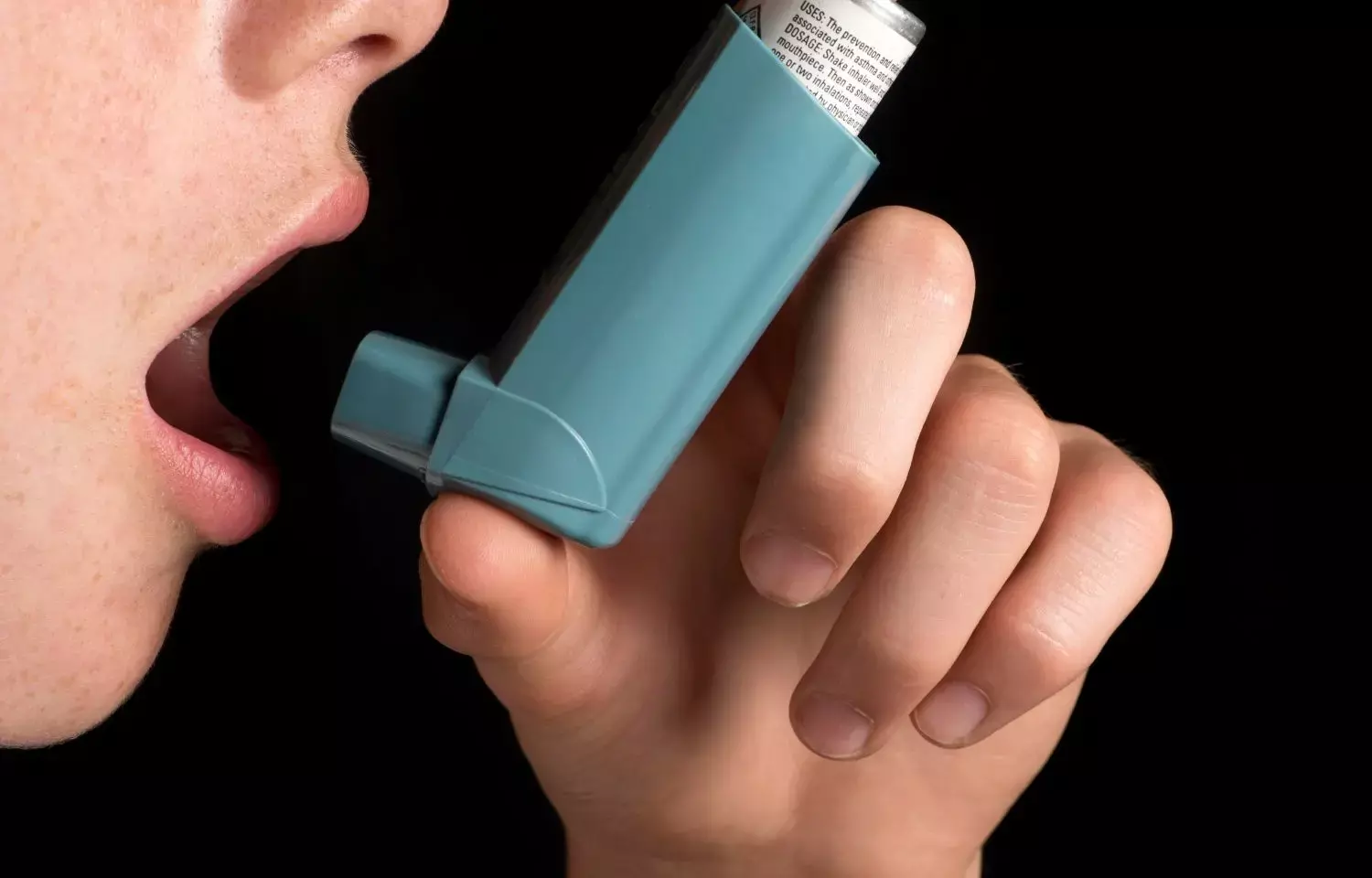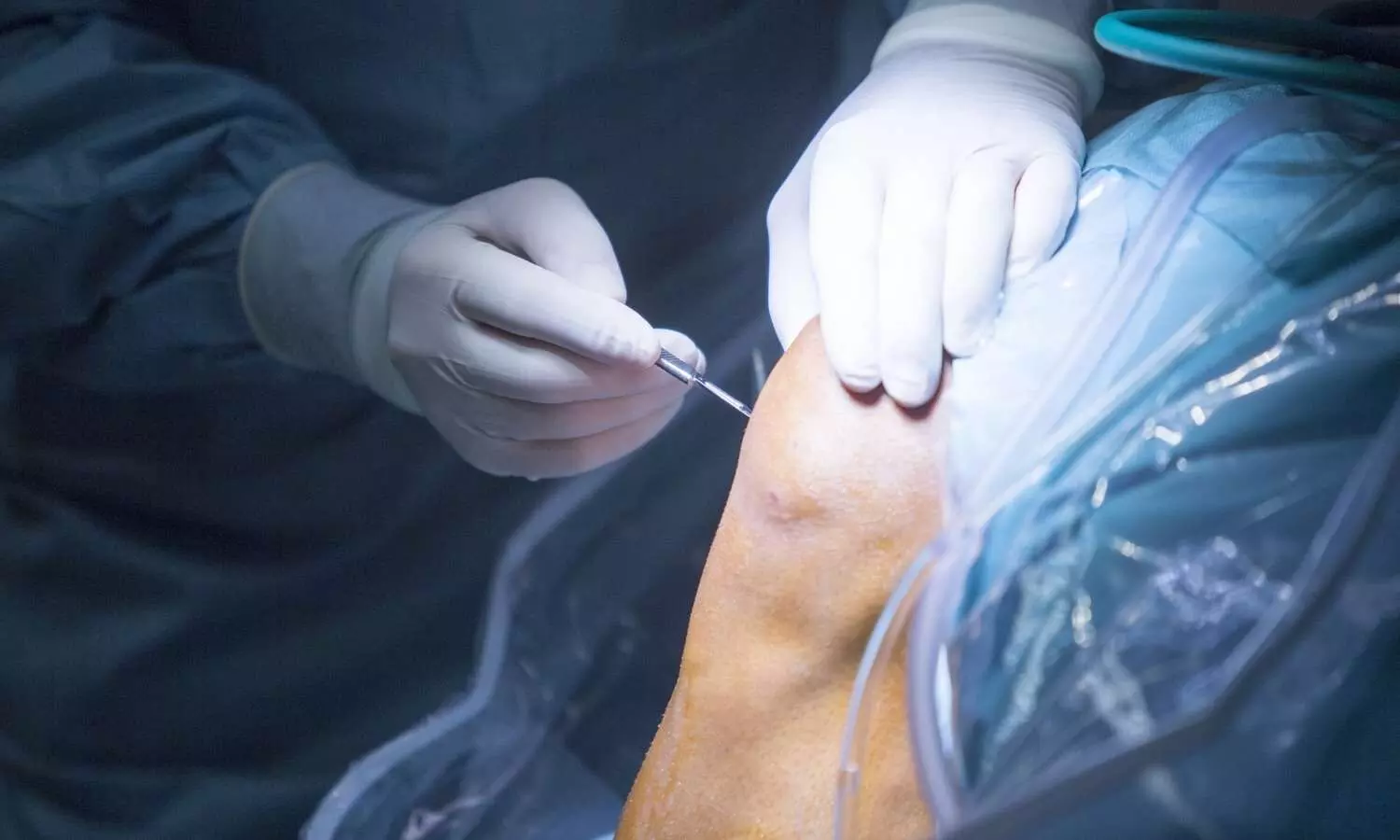- Home
- Medical news & Guidelines
- Anesthesiology
- Cardiology and CTVS
- Critical Care
- Dentistry
- Dermatology
- Diabetes and Endocrinology
- ENT
- Gastroenterology
- Medicine
- Nephrology
- Neurology
- Obstretics-Gynaecology
- Oncology
- Ophthalmology
- Orthopaedics
- Pediatrics-Neonatology
- Psychiatry
- Pulmonology
- Radiology
- Surgery
- Urology
- Laboratory Medicine
- Diet
- Nursing
- Paramedical
- Physiotherapy
- Health news
- Fact Check
- Bone Health Fact Check
- Brain Health Fact Check
- Cancer Related Fact Check
- Child Care Fact Check
- Dental and oral health fact check
- Diabetes and metabolic health fact check
- Diet and Nutrition Fact Check
- Eye and ENT Care Fact Check
- Fitness fact check
- Gut health fact check
- Heart health fact check
- Kidney health fact check
- Medical education fact check
- Men's health fact check
- Respiratory fact check
- Skin and hair care fact check
- Vaccine and Immunization fact check
- Women's health fact check
- AYUSH
- State News
- Andaman and Nicobar Islands
- Andhra Pradesh
- Arunachal Pradesh
- Assam
- Bihar
- Chandigarh
- Chattisgarh
- Dadra and Nagar Haveli
- Daman and Diu
- Delhi
- Goa
- Gujarat
- Haryana
- Himachal Pradesh
- Jammu & Kashmir
- Jharkhand
- Karnataka
- Kerala
- Ladakh
- Lakshadweep
- Madhya Pradesh
- Maharashtra
- Manipur
- Meghalaya
- Mizoram
- Nagaland
- Odisha
- Puducherry
- Punjab
- Rajasthan
- Sikkim
- Tamil Nadu
- Telangana
- Tripura
- Uttar Pradesh
- Uttrakhand
- West Bengal
- Medical Education
- Industry
Dupilumab reduces exacerbations and improves FEV1 in uncontrolled, moderate-to-severe asthma

A recent study found that in patients having uncontrolled, moderate-to-severe asthma Dupilumab showed sustained, long-term reduction in exacerbations and improved FEV1 regardless of the prior exacerbation history.
Asthma affects millions of populations worldwide characterized by airway inflammation and acute exacerbations. Multiple drugs are used for the management of Asthma-like corticosteroids, beta2 agonists, and immunoglobulins. Recent data shows that Dupilumab which is a fully human monoclonal antibody blocks the shared receptor component for interleukin (IL)-4/IL-13, key and central drivers of type 2 inflammation in multiple diseases. Add-on dupilumab significantly reduced exacerbations and improved lung function in patients with uncontrolled, moderate-to-severe asthma in the phase 3 LIBERTY ASTHMA QUEST study. The long-term safety, tolerability, and efficacy of dupilumab in patients from the previous dupilumab asthma study were evaluated by the LIBERTY ASTHMA TRAVERSE open-label extension study. Dupilumab safety during TRAVERSE was consistent with the known safety profile. The present study assessed dupilumab efficacy in QUEST patients enrolled in TRAVERSE with blood eosinophils ≥ 150 cells/µL or fractional exhaled nitric oxide (FeNO) ≥ 20 parts per billion (ppb) at parent study baseline, and ≥ 1, ≥ 2, or ≥ 3 exacerbations in the year before QUEST.
Patients who received placebo or dupilumab in QUEST received dupilumab 300 mg every 2 weeks in TRAVERSE (placebo/dupilumab and dupilumab/dupilumab groups) for up to 48 or 96 weeks. Unadjusted annualized severe asthma exacerbation rate (AER) and mean change from the parent study baseline in forced expiratory volume in 1 second (FEV1) were assessed.
RESULTS:
- Dupilumab vs placebo reduced AER in patients with ≥ 1 (0.458 vs 1.107), ≥ 2 (0.528 vs 1.483), or ≥ 3 (0.617 vs 1.915) prior exacerbations in QUEST.
- Patients in dupilumab/dupilumab vs. placebo/dupilumab groups with ≥ one (0.314 vs. 0.368), ≥ two (0.403 vs. 0.453), or ≥ three (0.445 vs. 0.545) previous exacerbations experienced further AER reductions in TRAVERSE from weeks 0–48.
- The same trend repeated in patients with ≥ 1 (0.229 vs 0.250), ≥ 2 (0.285 vs 0.235), or ≥ 3 (0.268 vs 0.186) prior exacerbations in TRAVERSE from weeks 48–96.
- In addition, mean change from parent study baseline in FEV1 (placebo/dupilumab vs dupilumab/dupilumab) was 0.34 vs 0.37, 0.36 vs 0.42, and 0.41 vs 0.47 at Week 2 of TRAVERSE in patients with ≥ 1, ≥ 2, or ≥ 3 prior exacerbations, respectively, and 0.37 vs 0.34, 0.44 vs 0.37, and 0.49 vs 0.45 at Week 96 of TRAVERSE.
Thus, in patients with uncontrolled, moderate-to-severe asthma and blood eosinophils 150 cells/L or FeNO 20 ppb at parent study baseline, regardless of prior exacerbation history, showed sustained, long-term reductions in exacerbations and improved FEV1 with Dupilumab.
Further reading: https://doi.org/10.1016/j.chest.2022.08.1603
CORREN J, CASTRO M, F MASPERO J, et al. DUPILUMAB REDUCED EXACERBATIONS AND IMPROVED LUNG FUNCTIONS IN PATIENTS WITH MODERATE-TO-SEVERE ASTHMA AND PRIOR EXACERBATIONS: LIBERTY ASTHMA TRAVERSE STUDY. Chest. 2022;162(4): A1936-A1938. doi:10.1016/j.chest.2022.08.1603
BDS, MDS
Dr.Niharika Harsha B (BDS,MDS) completed her BDS from Govt Dental College, Hyderabad and MDS from Dr.NTR University of health sciences(Now Kaloji Rao University). She has 4 years of private dental practice and worked for 2 years as Consultant Oral Radiologist at a Dental Imaging Centre in Hyderabad. She worked as Research Assistant and scientific writer in the development of Oral Anti cancer screening device with her seniors. She has a deep intriguing wish in writing highly engaging, captivating and informative medical content for a wider audience. She can be contacted at editorial@medicaldialogues.in.
Dr Kamal Kant Kohli-MBBS, DTCD- a chest specialist with more than 30 years of practice and a flair for writing clinical articles, Dr Kamal Kant Kohli joined Medical Dialogues as a Chief Editor of Medical News. Besides writing articles, as an editor, he proofreads and verifies all the medical content published on Medical Dialogues including those coming from journals, studies,medical conferences,guidelines etc. Email: drkohli@medicaldialogues.in. Contact no. 011-43720751




